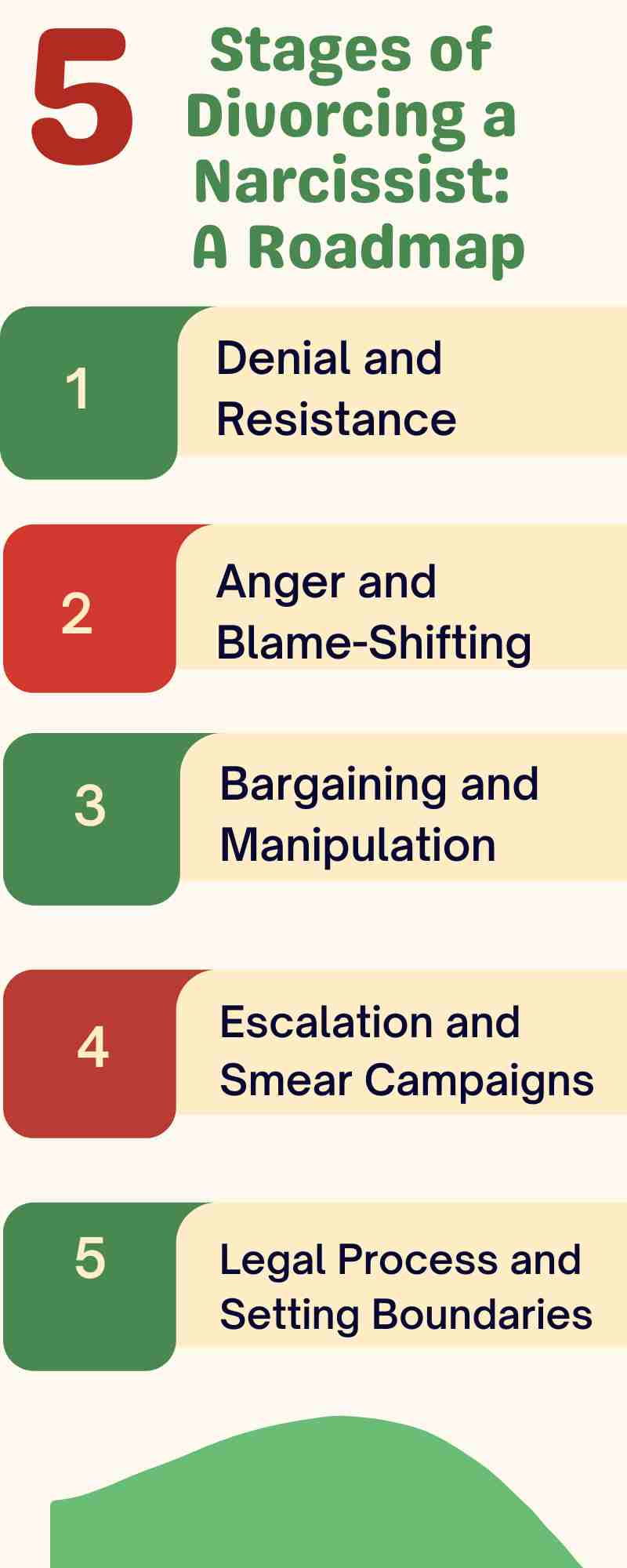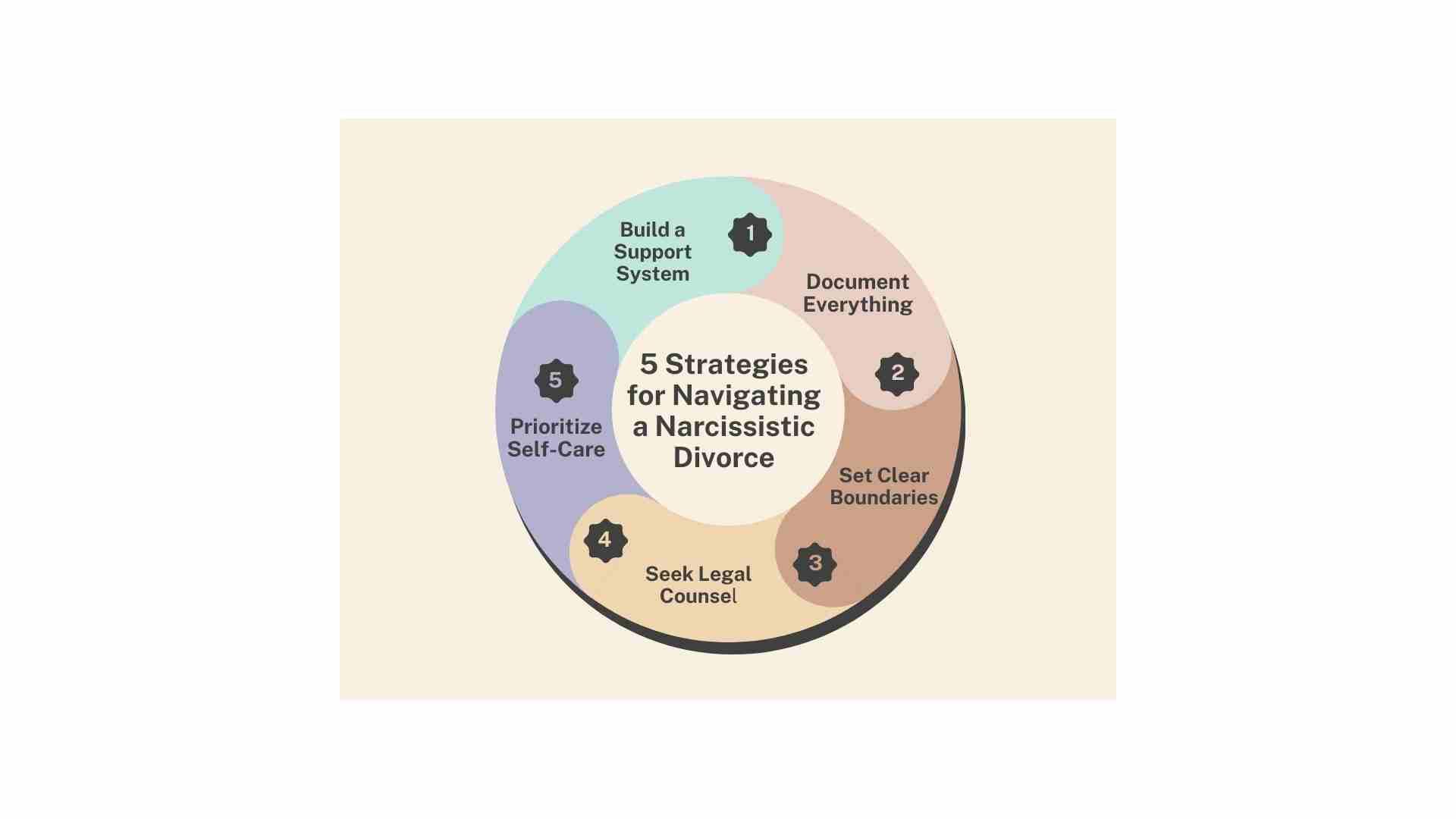As an experienced family law attorney here in Texas, I understand when my divorce clients are in a selfish state-of-mind. They are thinking that their partnership didn’t work and it’s time to take care of themselves. There is something healthy about this kind of selfishness. But sometimes, this form of self preservation is really something more sinister, and sometimes my clients like Belinda start to wonder it they are divorcing a narcissist.

“Chris, when does looking at yourself in the mirror mean more than just making sure you are looking your best before you go out?” Belinda asked me.
“This is not a joke, is it?” I responded.
“No, more of a rhetorical question. I’m just so nervous I’m not sure how to start telling you about this. But this man I once proudly called my husband, the father of my children, I think he’s become a narcissist,” she said. “He’s so self absorbed and full of, well BS, it’s getting scary.”
“Belinda, divorce can bring out the worst in people, so it could be causing his selfish side to intensify. Perhaps he thinks he’s protecting himself with his lies, but it is possible that he is a narcissist,” I told her. “And divorcing a narcissist presents extra challenges. But just know, even if we are dealing with a narcissist, I’ve been down that road before, and I know how to handle them.”
“That is comforting Chris, but how will we know if he’s just being selfish or if he’s a narcissist?” she asked.
“There are plenty of clues to help us determine if he is a narcissist and plenty of strategies to deal with them as necessary. Please allow me to go over some information that can help us recognize if he is a narcissist and then guide us about how to manage your divorce if he indeed is one,” I said.
Divorce is rarely easy, but divorcing a narcissist like Belinda presents unique challenges. You’ll be navigating a minefield of manipulation, gaslighting, and emotional turmoil. This article explains the stages of divorcing a narcissist, offering practical guidance and support. If his situation pertains to you here in Texas, early preparation and understanding the stages of divorcing a narcissist are vital for navigating your way through asset division of community property, child custody battles, and child support.
Understanding Narcissism in Divorce

Narcissistic Personality Disorder (NPD) involves a pervasive pattern of grandiosity, a need for constant admiration, and a lack of empathy. These narcissistic traits often intensify during divorce, making a typically stressful process much more challenging.
A narcissist often views divorce not as the end of a relationship, but as a battle to be won using manipulation tactics.
Recognizing Narcissistic Traits
Recognizing narcissistic behavior is the first step in dealing with a narcissistic partner. Here are some common signs:
- They often have an inflated sense of self-importance.
- They constantly need attention from others.
- They show little regard for other people’s feelings.
Key Takeaway
Early recognition of narcissistic behaviors can save you from drawn-out legal battles. Stay alert to signs like gaslighting and excessive need for admiration.
These traits can lead to:
- Manipulation of others.
- Exploiting people for personal gain.
- Difficulty in maintaining healthy relationships.
These narcissistic behaviors can greatly impact the divorce process, making it more challenging and emotionally draining.
Impact of Narcissism on Divorce Proceedings
Divorcing a narcissist presents unique challenges. The narcissist will often create a high-conflict environment prolonging the proceedings and shifting the focus away from finding a fair settlement to an all-out-battle.
The proceedings might begin with enough community property for a fair split, but the narcissist may decide to go to war, even willing to hurt themselves financially to make their target miserable. This is common in high-asset and complex divorces. You’ll need support divorcing a narcissist.
| Typical Divorce | Divorcing a Narcissist |
|---|---|
| Negotiations often follow predictable patterns; mutual compromise is more common. | High-conflict environment; spouse may refuse any compromise and escalate minor disputes. |
| Communication is more direct; fewer intentional delays or manipulations. | Frequent gaslighting, blame-shifting, or distortion of facts to maintain control. |
| Emotional volatility exists, but typically both parties seek closure. | Emotional abuse and smear campaigns can intensify, prolonging legal battles. |
| Fair division of property is usually the goal with transparent financials. | Attempts to hide or devalue assets are common; narcissist may sabotage their own assets just to hurt the other. |
| Less likely to involve children as leverage; co-parenting solutions are more straightforward. | Children may be used as pawns; custody disputes often drawn out with false allegations or manipulative tactics. |

Two Interesting Studies That Can Help Us Recognize a Narcissist
Have you noticed that your spouse is addicted to social media? A study out of the University of Michigan finds that narcissists tend to use social media more than most people because it allows them to curate their image and evaluate how others respond to this image. If your spouse is a social media addict, you might be dealing with a narcissist. This is especially interesting since social media posts can serve as evidence in your divorce case.
Source: You’re so vain: Study links social media use and narcissism | ScienceDaily
Have you noticed that your spouse reacts extra aggressively when they are criticized? An article published by American Psychological Association’s (APA) Journal of Personality and Social Psychology cites studies that find narcissists react with extra aggression when criticized. Of course a divorce can lead to criticism and attacks but if you are noticing extremely aggressive reactions, you might be dealing with a narcissist.
Source: Studies Find Narcissists Most Aggressive When Criticized | ScienceDaily

Stages of Divorcing a Narcissist: A Roadmap
While every divorce process is different, certain patterns emerge when divorcing a narcissist.
These stages aren’t linear and might overlap, but understanding them offers insight into what to expect. Divorcing a person with narcissistic personality disorder requires strategic responses.
Stages of Divorcing a Narcissist: Interactive Guide
Stage 1: Denial and Resistance
▼In this early stage, the narcissist often refuses to accept the reality of divorce and may:
- Minimize or dismiss relationship issues
- Promise to change without genuine follow-through
- Blame you for the relationship’s failure
Stage 2: Anger and Blame-Shifting
▼When denial no longer works, anger surfaces and blame-shifting intensifies:
- Smear campaigns against you to friends or family
- Escalation of hostile or aggressive behaviors
- Heightened sensitivity to criticism, often reacting aggressively
Stage 3: Bargaining and Manipulation
▼Desperate to regain control, the narcissist may try new tactics:
- Grand gestures or insincere apologies
- Financial manipulation (e.g., hiding or withholding assets)
- Emotional pleas designed to make you reconsider
Stage 4: Escalation and Smear Campaigns
▼As the divorce proceeds, manipulative behaviors may intensify:
- Increased hostility, threats, or intimidation
- Potential to use children as leverage
- Smear campaigns become more aggressive or personal
Stage 5: Legal Process and Setting Boundaries
▼The final stage focuses on the formal legal process and strong boundary-setting:
- Engage an experienced attorney for high-conflict cases
- Establish clear communication protocols (e.g., email-only)
- Implement detailed parenting plans and custody arrangements
1. Denial and Resistance
The narcissist may initially refuse to accept the reality of the divorce. They might minimize the problems, promise to change, or blame you for the relationship’s failure.
This denial is a way for them to maintain control and avoid facing the consequences of their actions. This is a common tactic employed by narcissists during divorce.
2. Anger and Blame-Shifting
Once the reality sets in, anger and blame often take center stage. You become the target of their frustration, and they may launch a campaign to discredit you to friends and family.
This blame-shifting allows them to maintain their sense of superiority and avoid taking responsibility for their part in the relationship’s breakdown. This is why it is so important to remember to seek emotional support during this trying time.
3. Bargaining and Manipulation
To regain control, a narcissist may offer insincere apologies or grand gestures. Be wary of these tactics; they often mask a deeper motive to maintain power and continue their abusive behavior.
This is where they might use a postnuptial agreement to their advantage, attempting to assert control over finances. Setting boundaries and documenting everything is important when dealing with manipulative behavior.
4. Escalation and Smear Campaigns
As the divorce proceedings continue, expect a potential escalation of manipulative tactics. This can include smear campaigns, threats, or using children as pawns.
This is why establishing firm boundaries and limiting communication becomes especially important. Their manipulative tactics may include trying to hide assets or engage in financial abuse.
Narcissists react intensely to divorce and can be abusive. Seeking legal counsel early on can protect you from financial and emotional harm. You may need support groups during the process.
5. Legal Process and Setting Boundaries
Throughout the stages of divorcing a narcissist, engage with an experienced divorce lawyer in your Texas jurisdiction.
They will protect your best interests and maintain legal compliance. It’s crucial to have a parenting plan in place to protect your children from the narcissistic parent.

Strategies for Navigating a Narcissistic Divorce
Here are a few critical pieces of advice. I recommend anyone divorcing a narcissist to be self-critical throughout the legal process.
Build a Support System
Surround yourself with trusted friends, family, and a therapist who understands narcissistic abuse. They can provide invaluable emotional support and practical guidance.
Having a support system helps you stay grounded and focused during this tumultuous time. They will remind you of your worth when your spouse with NPD tries to diminish it.
Learn how to leave a narcissist for good.
Document Everything
Keep records of all communication, including emails, text messages, and voicemails. This documentation can be vital evidence in legal proceedings, especially when dealing with financial abuse or hidden assets.
This includes documenting any instances of domestic violence or emotional abuse. These records will be important for your legal team.
Legal Tip
Always document every interaction carefully. In high-conflict divorces, solid evidence and thorough records can make or break your case.
Set Clear Boundaries
Establish firm boundaries with your narcissistic spouse, limiting contact to essential matters. Don’t engage in arguments or emotional battles.
Consider using a mediator to facilitate communication. Remember telling a narcissist you’re getting divorced will not be easy.
If you need help, get tips about divorcing a narcissist. Seek legal counsel to protect yourself legally. Getting a restraining order might be necessary if domestic violence occurs. Understanding narcissism can help establish boundaries.
Seek Legal Counsel
Engage an experienced attorney well-versed in high-conflict divorces and narcissistic personalities. They can help you navigate the legal system and protect your interests.
The complexities can escalate quickly, potentially leading to a public bench trial where everything said becomes public record.
Prioritize Self-Care
Throughout this process, prioritize your well-being. Focus on physical and mental wellness. Practice meditation, journal, or spend time outdoors.
Maintaining your well-being is essential for navigating this challenging period. Self-care provides emotional support and strength.

Frequently Asked Questions
FAQs About Narcissist Behavior & Communication
How does a narcissist behave in divorce?
Narcissists often escalate manipulative tactics during divorce, including blame-shifting, gaslighting, and smear campaigns.
They may prolong proceedings, use children as pawns, or attempt to financially drain their spouse.
Likewise, they often refuse to follow court orders and may hide financial records.
How do I talk to (and disarm) a narcissist spouse during divorce?
Keep communication concise and factual, focusing on essential divorce-related matters.
Avoid giving emotional reactions that can fuel manipulative behavior, and consider the “gray rock” method—staying neutral and unresponsive to drama—to defuse tension.
By maintaining firm boundaries and documenting interactions, you minimize opportunities for the narcissist to undermine or provoke you.
FAQs About Negotiation & Court
How to negotiate with a narcissist in divorce?
Negotiating with a narcissistic spouse requires a strategic approach.
It’s essential to remain calm and focused, avoiding emotional engagement.
Clearly outline your goals and rely on your divorce attorney to mediate discussions, ensuring all agreements are documented to prevent any manipulative behavior from undermining the process.
Establish firm boundaries and prioritize legal advice to protect your interests during negotiations.
How to deal with a narcissist in divorce court?
Dealing with a narcissist in divorce court proceedings requires preparation and a strategic approach.
It’s essential to remain composed and focused on factual evidence, avoiding emotional reactions that the narcissistic spouse might exploit.
Collaborate closely with your legal team to present a strong case, ensuring all documentation and communications are meticulously organized to counter any manipulative tactics.
FAQs About Evidence & Coping Strategies
How do you prove narcissistic abuse in a divorce?
Begin by documenting all incidents meticulously, including messages, financial records, and any witnesses to emotional or physical abuse.
You may need expert testimony from counselors or mental health professionals to reinforce patterns of manipulation or coercive control.
Presenting consistent, factual evidence can be crucial in court.
What is the “gray rock” method when divorcing a narcissist?
The “gray rock” method involves responding to a narcissist with minimal emotion or personal detail.
By offering neutral, one-word answers and refusing to engage in drama, you remove the emotional fuel they crave.
This approach can help reduce conflict and maintain your own emotional well-being.
FAQs About Children & Legal Representation
How can I protect my children from a narcissistic spouse during divorce?
Set firm boundaries around co-parenting time and communication, possibly with the help of a court-approved parenting plan.
If your children are old enough, calmly explain healthy ways to respond to manipulative behavior.
Always consult a family law attorney if you believe your children’s well-being or safety is at risk during or post-divorce.
Should you represent yourself when divorcing a narcissist?
Self-representation against a high-conflict, manipulative individual can be overwhelming and risky.
An experienced lawyer can act as both a protective shield and strategic ally, ensuring you avoid legal pitfalls.
In most cases, having professional guidance significantly improves your odds of a fair outcome.
Legal Tip
Always document every interaction carefully. In high-conflict divorces, solid evidence and thorough records can make or break your case.
Conclusion
Divorcing a narcissist presents complex emotional and legal hurdles. The emotional rollercoaster can feel overwhelming. You might face high-conflict situations, extended divorce duration, and smear tactics aimed at manipulating you out of marital assets.
By understanding a narcissist’s behavior during a Texas divorce and arming yourself with effective strategies, you can effectively navigate this challenging process. Prioritize your mental and emotional health by maintaining contact with medical professionals like primary care physicians, psychologists, and close friends.
Building a support network, setting firm boundaries, and seeking professional counsel are crucial. Focusing on self-care, protecting your finances, and remembering your self-worth will help you emerge stronger and move forward into a more peaceful future. Be mindful of digital documentation of your interactions, especially on social media. It can be crucial in protecting your interests during divorce proceedings.

How Will Belinda Proceed?
“Chris, I think he is one, I think he is, “she declared. “He thinks so much of himself and constantly wants attention. I used to think he cared about me and the kids but now I think he’s just being manipulative. And he can spend all weekend on social media. Yikes, is this only going to get more difficult?”
“We have to be prepared for this to get more difficult but that doesn’t mean it will be if we are smart about it,” I told her. “Let’s look for some more signs. How did he react when you initially told him you wanted a divorce?”
“He pretty much ignored me and was in denial. Though, he promised to change but didn’t. And when I called him out on it, he got defensive and angry. He actually tried to twist it around and blame me,” she said.
“Yup, textbook narcissistic behavior, but Belinda, I don’t want to label him a narcissist. There’s a wide range of selfish behavior and we all have it in us to some extent. If he finds out we’re calling him a narcissist, it might make things worse, so l’m not going to use the label,” I explained. “But between you and me, I’m going to proceed as if he’s going to act like one. That way, we’re one step ahead of him.”
Taking Strategic Action
“Sounds good Chris, what does that mean in practice terms?” she asked.
“For starters, I want you to be cautious if he starts offering up all sorts of apologies or doing extra nice things. This could be a way to manipulate you, “ I told her. “Then I want you to let me know if he starts smearing you on social media or to other people. Let me know if he threatens you or uses the kids as pawns in his game.”
“Okay, I will, I sense all of that is coming. What else can I do?” she asked.
“Please set up a support system, not just me, but friends, family, and even a therapist to help you manage the emotional turmoil he might try to create. And document all communication that can serve as evidence,” I advised.
“What should I do if he starts a fight?” she asked.
“Only communicate about the necessities, don’t take the bait and engage with him on an emotional level,” I told her. “I know it’s easier said than done, but you can do it, and your support system will help.”
“Thanks Chris, this is a lot, but now I’m starting to feel prepared to divorce a narcissist,” she said.

Schedule a Consultation With Our Firm to Learn About the Stages of Divorcing a Narcissist in Texas
Divorcing a narcissist can be extra stressful and challenging, but you do not have to face it alone. Our team of experienced Dallas family attorneys is ready to provide you with the guidance, support, and legal advocacy you need during these challenging times.
Whether you need advice about divorcing a narcissist, or are navigating other divorce related issues, we are here to help you every step of the way. We welcome you to schedule a consultation to discuss your situation and case objectives. We can answer your legal questions and discuss how we can help you move forward. Call our law office at (888) 584-9614 or contact us online to schedule your consultation.

